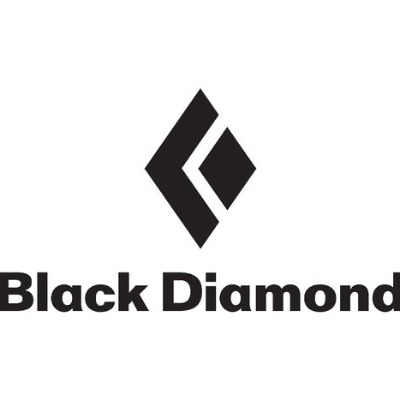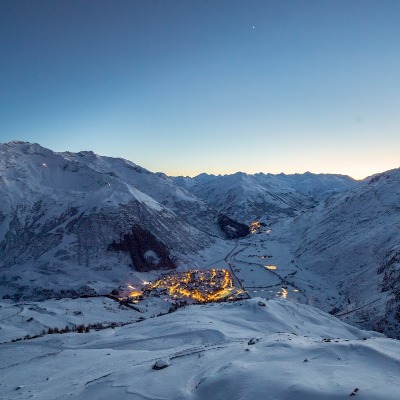GB Snowsport Looks Back, And Forwards

The 2020/21 snowsport season has presented challenges like no other, but as the countdown to the Olympic and Paralympic Winter Games in Beijing grows ever shorter, GB Snowsport’s mission to make Britain a leading snowsport nation continues to gather pace.
While COVID-19, congested travel arrangements and challenging logistics have threatened to derail British hopes on the world stage, the entire GB Snowsport family – athletes, coaches, technical staff, and administrative teams – have pulled together to deliver Britain’s greatest ever season on snow. And, as attention turns to an Olympic and Paralympic Winter Games which may become the nation’s greatest ever, it is an opportune moment to look back at the journey that has brought us to this point.
A decade ago, British snowsport was in crisis. Despite the efforts of individual athletes on the slopes, the federation behind Britain’s world class programme was at the point of collapse, in severe financial distress and facing schisms within its ranks.
As the dust settled, the first outlines of a plan began to take shape; a plan to make Britain a top-5 snowsport nation by providing a new generation of British snowsport athletes with the right infrastructure, funding, support and technology to make new strides at World Cups, World Championships and the Olympic and Paralympic Winter Games.
The disciplines overseen by GB Snowsport are now accountable for 98% of all medals available at a Paralympic Winter Games and 50% for the Olympic Winter Games; the largest medal responsibility across any Olympic and Paralympic Governing Body, summer or winter. The success of the nation’s winter sport programme hinges on undeniably difficult decisions; decisions where short-term pain must be balanced against the prospects of long-term success.
Over the past four years, the entire GB Snowsport team have made significant steps both on the slopes and behind the scenes as we work together to make Britain a leading snowsport nation. The pride that British snowsport instils among the nation’s snowsport fans is now there for the world to see. Even in a season curtailed due to the impacts of COVID-19, Britain has surpassed every target set, winning more medals and achieving more top-10 performances across more events and classifications than ever before.
While the COVID-19 pandemic has impacted the number of competitions held in the 2020/21 season, GB success has remained unbowed. To give a sense of the scale of medal achievement in international events, in the 2019/20 and 2020/21 seasons, GB Snowsport athletes won over 45 podium positions, and parathletes over 30 podium positions. During these two seasons, the country has also crowned 2 World Champions and won 4 Crystal Globes. Of the total Alpine Europa Cup wins in British history, 7 belong to current GB Snowsport programme athletes, 4 of which were achieved this season alone. These results surpass what many within, and outside, of our sport believed was possible for the country.
This progress would not have been possible without a drive to relentlessly increase the qualifying standards for all snowsport disciplines. Contrary to those who said this would substantially reduce the interest and performance of our athletes, it has delivered something remarkable: an increase in performance, ambition and credible outcomes at the highest levels. GB Snowsport have also completely overhauled the Paralympic structure, coaching model and team environment. In the last few months, GB Snowsport can demonstrate medal competitive across all Paralympic disciplines.
The recent success of the sporting disciplines overseen by GB Snowsport has been long in the making. The implementation of an “Athletes First” approach – which entails everything from high-class coaching, to marginal gains through things such as aerodynamics, to athletes’ mental health – has forged a winning mentality, which is being recognised by other nations who are increasingly aware that GB Snowsport is on an upward trajectory at every level of the sport. British athletes and their support teams now have the belief that their performances will lead to success on the world’s biggest stages.
The nation’s secret weapon in its journey of recent years has been a simple recalibration: to focus more on performance than results. What may seem a superficially subtle difference has in fact created a higher degree of accountability among athletes, staff and administrators, providing a stronger support network, and a team singularly aligned on achieving a common goal. The right ingredients now exist at every level to take British snowsports to never-before reached heights, while ensuring athletes are kept healthy, fit, and focused for moments that will be the pinnacle of their careers. That commitment has created a culture of success, and a commitment to never stop asking ‘why’, perpetually seeking to understand the steps needed to elevate the sport even further, and a dedication to drive all disciplines forward, no matter the obstacles ahead. It is a commitment which also recognises a responsibility to athletes as they enter the pathway, throughout their careers, and critically after their time on the slopes comes to a close. A wider programme of mental health and lifestyle support has developed to provide meaningful support to each individual athlete, ensuring they are respected as people, not simply as sporting assets.
This ethos permeates GB Snowsport; working for team success also means catering for individuals’ needs. There is no room for less than 100% commitment to the programme, and no appetite for individual disciplines to be siloed or cut away from one another. The whole team – as one team – continues to work to its limits, straining every sinew to fulfil British athletes’ potential, and bring more medals home than ever before.
The “one team” which takes to the slopes every time a British athlete competes is met by one brand behind-the-scenes. From a group of disparate sports competing for the same audiences has risen a single family of sports: aligned, supported, and backed by a single brand with the power to grow and expand its influence in the years to come, and to provide an instantly-recognisable face for British snowsport in the eyes of the nation’s public.
Unavoidably, it is the case that efforts to grow the success of all British snowsport disciplines have meant that some athletes with high hopes of representing their country have unfortunately been left behind as standards improve and new generations of athletes take us to ever greater levels of success.
Four years ago, British snowsport Olympic medal hopes were 1-2. Today, as we build towards the Winter Olympic and Paralympic Games in Beijing, they are 3-7 across Olympic disciplines and 7-11 across Paralympic. Funding from UK Sport has increased from £7.9m to £15.5m from the PyeongChang to the Beijing cycle. It is some jump from the combined £2m for Sochi 2014 and reflective of the strides taken from that moment. Since taking the Paralympic disciplines under the team’s umbrella, GB Snowsport has overseen a wholesale change in the programme which has entirely reduced the costs borne by our world leading Para athletes. Increasing the size and depth of the nation’s programmes makes us more medal competitive, across more events and more classifications.
Among Olympic and Paralympic sports in Britain, snowsport is not alone in relying on a degree of athlete-led funding to support the ability to compete at the highest levels. There is a painful awareness of the challenges and the sacrifices that this can lead to. There are 144 athletes in total across GB Snowsport Olympic and Paralympic Programmes, and the World Class Programme is currently limited to 27 Olympic and 16 Paralympic places, although this is reviewed annually and can be increased if new medal opportunities are identified. It is a desire and an ambition to continue to reduce athlete contributions across all programmes, but it is vital that this is be done in a pragmatic way in order that we can build a sustainable, long-term future for elite snowsport across the country.
Progress on Britain’s world class snowsport competitiveness can be a source of pride, but it is important that we go further. The impacts of COVID-19 at home and globally have been felt by our athletes, our support staff and our whole sport. They have also made it more challenging to attract new sponsorship income that would directly fund the complex support programmes that provide each of our athletes with the platform to fulfil their potential on the world stage. Despite these challenges, we remain unbowed in our efforts to reduce and mitigate any barriers that our athletes face, whether financial or otherwise.
The funding of GB Snowsport itself has been significantly improved with additional sponsorship and benefactors’ contributions of circa £2.9m secured to invest in the programmes, creating the success that led to increased UK Sport funding – investment which was split across all programmes; including Alpine which previously had almost no funding. Winter-based sports may not always enjoy the same profile as the nation’s more traditional blue-riband sports, but British snowsport is a true success story, with the nation’s athletes achieving ever better results; results which create increased confidence that a commercial partner will come on board to boost the nation’s hopes yet further.
The World Class Programme is funded to deliver success at Olympic and Paralympic Games, and GB Snowsport’s top priority has to be to ensure sustainable delivery against performance targets set by UK Sport. That is crucial to the survivability of the World Class Programme. Through the professionalisation of all programmes, GB Snowsport have refined and developed selection policies to reflect the current international and national environments. One of the reasons why GB Snowsport believes that the target of having more disciplines on more podiums by ensuring the selection policies reflect the standards needed to strive for best ever results. The performance support now in place for GB Snowsport World Class Programme athletes is world class and continually progressing; the standards reflect this level of investment into the athletes.
Whilst GB Snowsport has increased activity at pathway level with Europa Cup Programmes, to assist athlete development, the main priority will always go to World Class Programme athletes who are demonstrably capable of delivering Olympic and Paralympic success in 2022 and beyond. Of course, the key to successfully delivering consistent results will be the pathway programme and the development and identification of talent at a young age, with continued work with the country’s Home Nation Governing Bodies, Snowsport England, Snowsport Scotland and Snowsport Wales, is so important to the overall landscape of snowsports.
As a sport we should always be grateful for the pioneers that helped Britain take its early steps in international snowsport, but we must also know when it is time to move on and to commit ourselves to a brighter future led by a new generation of world class British athletes. Britain’s world class snowsport programme and GB Snowsport, as the organisation behind it, have taken positive strides, with both athletes and support staff agreeing that the sport has truly become one team achieving a common goal, to provide the best resources for athletes who are inspired to achieve the best results possible.













